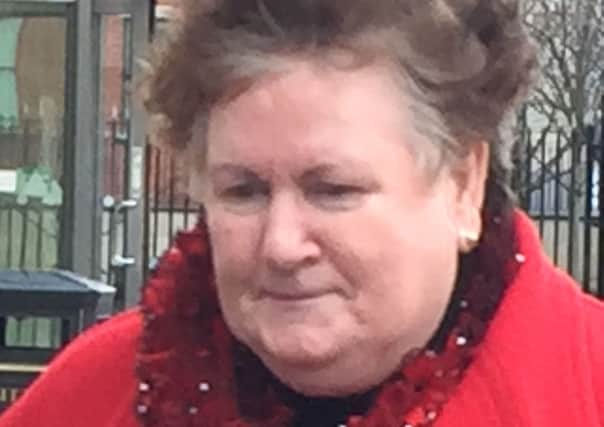Inquests '˜could have drained £150m legacy funds'


Officials were concerned that a Department of Justice (DoJ) paper lacking a proper business case and reform proposals may have left nothing for other planned new bodies, a judge was told.
Counsel for the Northern Ireland Office (NIO) also rejected claims that the coroners service is in a state of collapse from being starved of resources for more than 50 outstanding Troubles-related inquests.
Advertisement
Hide AdAdvertisement
Hide AdResponding to allegations in a legal challenge by the widow of an innocent civilian shot dead along with eight IRA men, Tony McGleenan QC identified 10 hearings set up since 2016 and another three due to begin later this year.
He said: “The suggestion that the secretary of state and the NIO have conspired to discriminate by blocking or stopping legacy inquest funding is wholly untenable.”
Brigid Hughes is seeking to judicially review the governments in London and Belfast for failing to release the funds necessary to hold a series of tribunals into killings which occurred during the conflict.
Her husband, Anthony, died after being unwittingly caught up in the SAS ambush of an IRA unit at Loughgall, Co Armagh in May 1987.
Advertisement
Hide AdAdvertisement
Hide AdProceedings have been issued against the secretary of state, the Stormont Executive and former first minister Arlene Foster personally due to her alleged responsibility for the logjam.
It is claimed that in 2016 she unlawfully blocked a paper on bidding for inquest funding before it could be discussed by cabinet colleagues.
Those proposals, drawn up by the DoJ, came after Northern Ireland’s Lord Chief Justice, Sir Declan Morgan, advanced a plan to have a backlog of cases dealt with within five years.
The government indicated that the required financial resources will not be released until political consensus is reached on dealing with the past.
Advertisement
Hide AdAdvertisement
Hide AdOn day three of the case Mr McGleenan set out how the Stormont House Agreement from 2015 included a five-year plan for Treasury to fund bodies including a new Historicial Investigations Unit and Oral History Archive if Stormont politicians could come to an agreement.
With the overall pot fixed at £150m, the barrister argued that the DoJ paper only covered 16 of the 55 legacy inquests, at a cost of £16.9m over a 19-month period.
He also disclosed that the Attorney General’s Office is considering whether to direct inquests in another 72 cases.
If attempts were made to spend all legacy money on inquests it could result in nothing being left for the planned new bodies, it was submitted.
Advertisement
Hide AdAdvertisement
Hide AdMr McGleenan said: “One sees again the potential scope for draining the £150m put forward by Stormont House into the under-performing legacy process.”
Correspondence detailed in court revealed NIO officials’ thoughts on the paper drawn up to seek funding, according to counsel.
Attorney General John Larkin QC, representing Mrs Foster, had already described the document as “undercooked”.
Continuing with that assessment, Mr McGleenan contended: “Ingredients are missing from this – there isn’t a business case, there isn’t a costal plan for the five years and there aren’t proposals for reform.”
Advertisement
Hide AdAdvertisement
Hide AdHe also stressed 13 legacy inquests which have commenced since 2016, or are due to start later this year, without any additional funding.
“On behalf of the secretary of state, we don’t accept the proposition that we are in a state of collapse in terms of the coronial system,” Mr McGleenan added.
He told the judge, Sir Paul Girvan, how the government had invited an application for legacy funding, based on it coming from the Stormont Executive, backed by the political parties and properly costed.
“In fact, the sought for bid never came, and the bid which was being prepared did not have the minimum content necessary.”
The case continues.